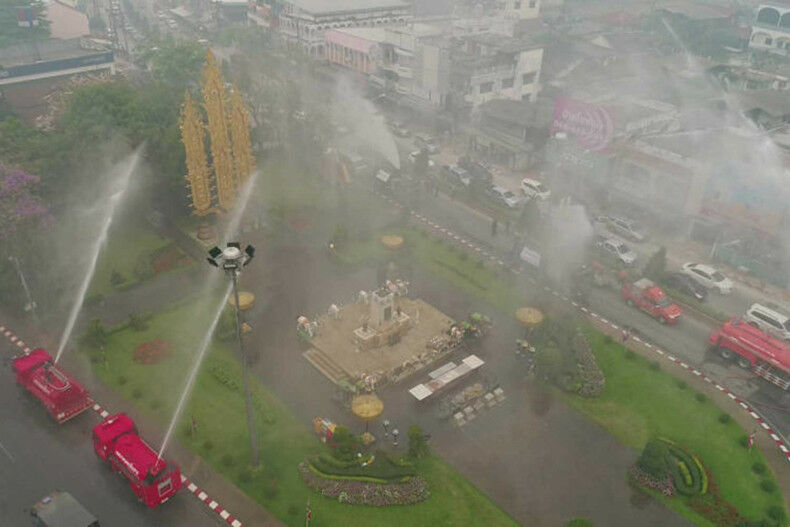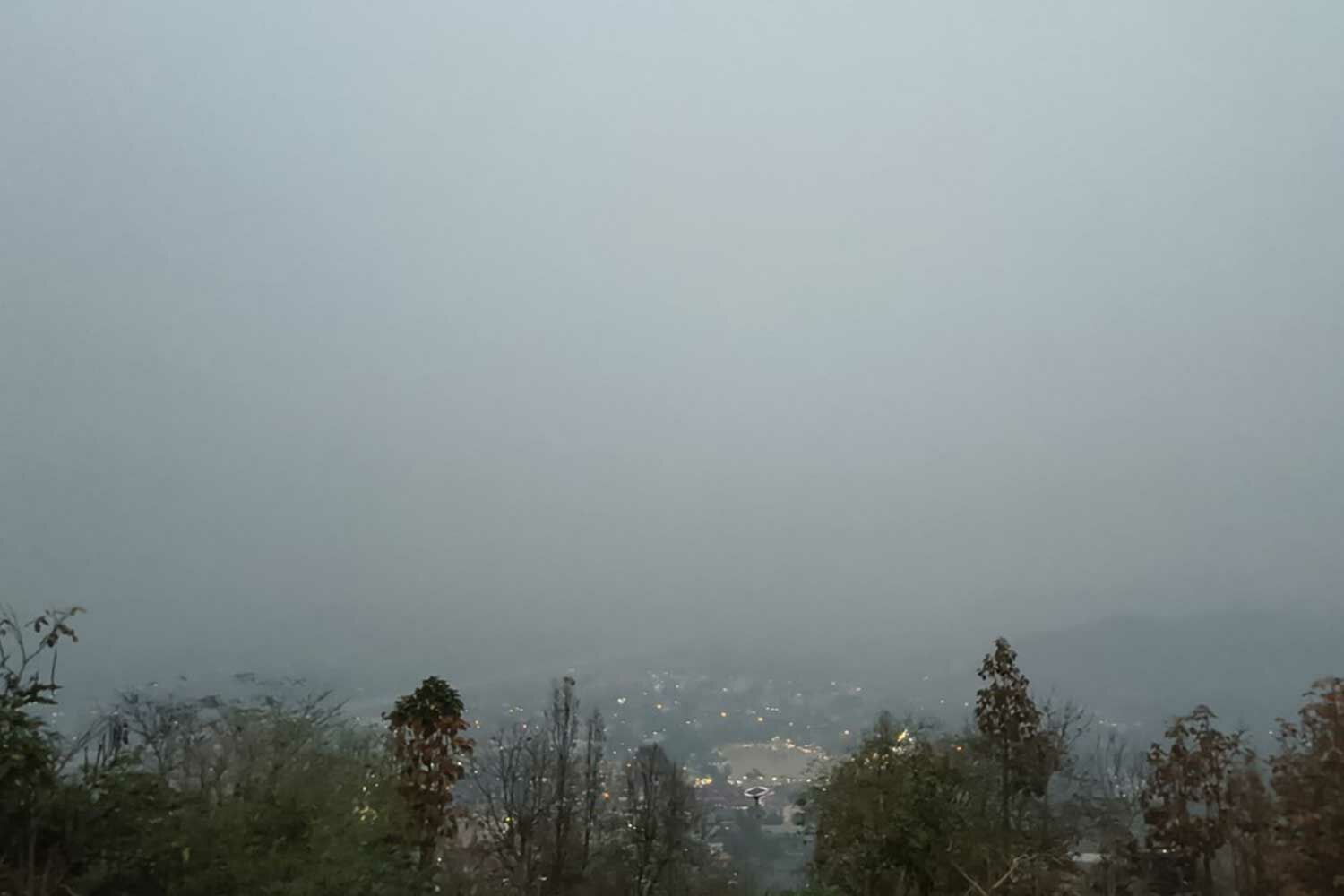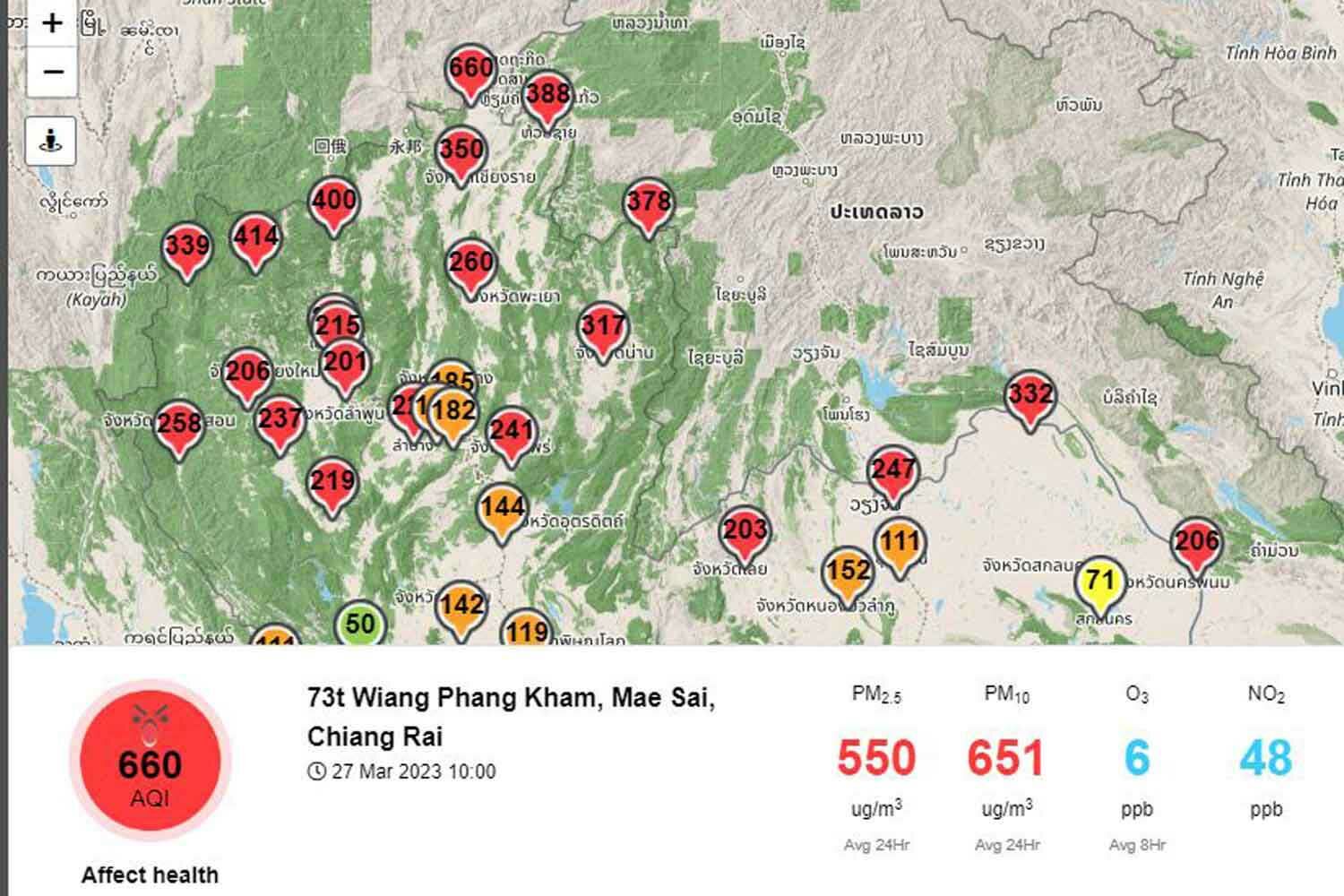Chiang Mai tour operators concerned over pollution, bookings down 50%

Tour operators in Chiang Mai raised concerns after the latest tourism figures revealed bookings were down 50% after the popular tourist destination was ranked the world’s most polluted city. But that’s not all, respiratory diseases in the province continue to rise
The air quality index produced by Swiss company IQAir revealed that Chiang Mai had a reading of 216 at noon yesterday, which is considered “very unhealthy.” Anything above 51 is a cause for concern. In comparison, Bangkok had a reading of 80, while Birmingham and London had readings of 25 and 8, respectively, reported the UK Guardian.
Chiang Mai, which is home to 120,000 people and attracts millions of tourists every year, has seen its air quality worsen each year.
Dr Nitipatana Chierakul, a specialist in respiratory medicine, has noticed a similar trend in his patients at his hospital department in Bangkok, with many experiencing chest pain or prolonged coughs.
He said…
“Mostly they have difficulty breathing. For at least three months, patients who have pre-existing conditions can amount to up to 80% of his department’s caseload.”
A local tax driver, called Pat, added…
“The haze has been very bad this year. I think now we have four seasons: summer, winter, rainy, and the haze.”

IQAir revealed that Chiang Mai was ranked as the most polluted city last night, with a “very unhealthy” reading of 177.
Chaicharn Pothirat, a pulmonary consultant and professor of medicine at Chiang Mai University, stated that the haze in Chiang Mai is seasonal.
“But over the last 20 years, the intensity and duration has become worse and worse.”
Prasong Ranea, a retired hunter and farmer from Pa Tung Ngam, stated that the majority of people involved in agribusiness use fire to clear land for the next crop cycle, while some hunters use fire to promote growth in certain areas.
He also mentioned that even when the government imposes zero burning rules, people continue to burn. This is because some people cannot afford machines or believe that burning is the best way to hunt.
The pollution caused by burning has economic consequences for Chiang Mai, with some businesses reporting a significant drop in bookings during the peak of the burning season.
Chiang Mai Tee Tours owner, Mr Tee, said…
“At the start of March, it was a problem, tourists were not coming, I would say I had a 50% drop in bookings.
“I [have] worked in tourism for 30 years… and I think tourists are becoming more aware of the pollution.”
A Chiang Mai medical practitioner believes the haze has been linked to serious health problems including heart disease, strokes, and lung cancer.
Prof Pothirat at the Maharaj Nakorn Chiang Mai Hospital revealed he tells people to leave the area.
“As a daily practitioner, I can see that health is deteriorating, especially in the last few years.
“Most people cannot afford to relocate at this time of year, but I tell my patients who are foreigners or have relatives in the south to leave to protect themselves.”
The situation in Chiang Mai emphasizes the importance of a coordinated effort from governments, businesses, and individuals to tackle the problem of air pollution. While initiatives like banning burning and promoting alternative land-cleaning methods may be helpful, the issue is complex and requires a multi-faceted approach to address.
Dr Nitipatana, who works at Siriraj hospital, expresses concern that without action, rates of disease will worsen.
For his patients, the smog leads to a decline in quality of life and potentially a more severe prognosis. Dr Nitipatana added that no political party has prioritized the issue of air pollution in their campaigns leading up to May’s General Election. He believes that the protection of the environment, especially the air, should be a promise made to the people by political parties.
It is hard to argue against Dr Nitipatana’s prognosis.

Latest Thailand News
Follow The Thaiger on Google News:


























